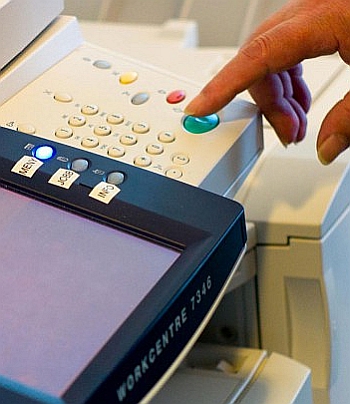Bristol Water taps into Annodata print services to cut costs

CASE STUDY: Over 110 printers cut to just 15, saving massively on Opex
Bristol Water spends a lot print, with 500 staff generating a large number of reports and copies on a daily basis.
But with an active programme to improve efficiencies within the business, Bristol Water turned to Annodata to see how it could reduce its print output and save money in the process.
Bristol Water started a consolidation exercise, which would see it centralise two office locations into one. The consolidation offered the opportunity to assess all of the assets within the organisation and see where efficiencies and savings could be made, and it soon became clear that Bristol Water’s printer estate was ripe for consolidation.
 The estate consisted of around 110 desktop printers and a handful of contracted Canon multi-functional devices (MFDs), which ultimately was reduced by about 90 percent.
The estate consisted of around 110 desktop printers and a handful of contracted Canon multi-functional devices (MFDs), which ultimately was reduced by about 90 percent.
Nick Rutherford, business improvement, programme manager at Bristol Water, said: “It was clear that the device to staff ratio was too high – all the more so because many of our employees spend a lot of time out in the field.
“An external third party looked after the MFDs, but it was down to our internal third party IT vendor to maintain and procure the desktop devices. This was taking more of their time than it should have done, which ultimately would have been better spent elsewhere.”
Bristol Water wanted to slash maintenance levels, as well as toner and other consumables costs.
Bristol Water brought in Annodata to audit the estate and find out where the greatest efficiencies could be made.
Having assessed Bristol Water’s printer set-up, Annodata’s professional services team devised and implemented a solution that would almost completely eradicate desktop printers, rationalising the number down to just three, and replacing the others with 11 Canon MFDs.
The shift was made possible by the introduction of Canon’s print management software uniFLOW. The software allows Annodata to remotely monitor print usage to look at which devices are experiencing the greatest amount of traffic and ensure that, in spite of the lower number of devices, staff all have easy access to printers.
 uniFLOW includes a PIN-release function, meaning that staff must input their personal printing codes in order to print documents, with unclaimed documents being removed from job queues. A further benefit of the software is that it allows print settings, such as black & white or double-sided, to be managed centrally and by default, giving Bristol Water greater control.
uniFLOW includes a PIN-release function, meaning that staff must input their personal printing codes in order to print documents, with unclaimed documents being removed from job queues. A further benefit of the software is that it allows print settings, such as black & white or double-sided, to be managed centrally and by default, giving Bristol Water greater control.
Annodata backs up the solution with a “rock-solid” service-level agreement, said the utility. Should a device ever break down, one of Annodata’s engineers will be on site within a minimum of four hours, ensuring service continuity.
Since the overhaul, Bristol Water has enjoyed significant cost savings and has seen a considerable drop in the number of pages it prints annually.
Rutherford said: “Two years ago we were running at an annual Opex cost of around £90,000 to maintain and run our printer estate, which has been reduced down to around £25,000 today. Moreover, we’ve gone from around 2.5 million page impressions a year down to a forecast of 1.7 million.
“By any measure, these are excellent results. Follow-me printing with uniFLOW has made us a much cleaner and greener business as there aren’t any wasted print jobs, and our colour print jobs have reduced significantly because we’ve been able to default to black and white.”
@AntonySavvas